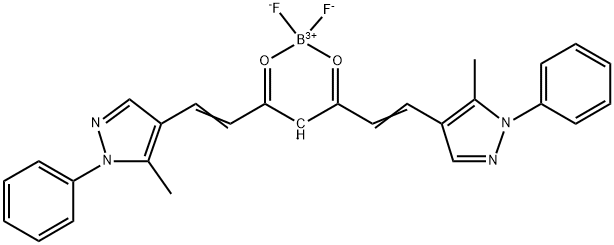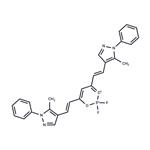CRANAD 28 is a curcumin derivative and non-conjugated fluorescent affinity probe for the detection of amyloid-β (Aβ) in vitro and in vivo that has excitation/emission spectra of 498/578 nm, respectively. It binds to various forms of Aβ, including Aβ40 monomers and aggregates, as well as Aβ42 monomers, dimers, and oligomers (Kds = 68.8, 52.4, 159.7, 162.9, and 85.7 nM, respectively). When bound to Aβ, the fluorescence intensity decreases, in contrast to similar curcumin-based fluorescent probes. CRANAD 28 labels amyloid plaques and cerebral amyloid angiopathy both in APP/PS1 mouse brain sections and in live mice following i.v. administration. It also inhibits copper-induced and naturally occurring Aβ crosslinking.

